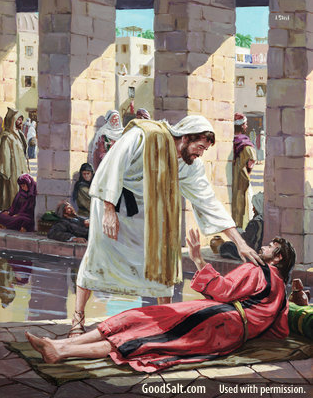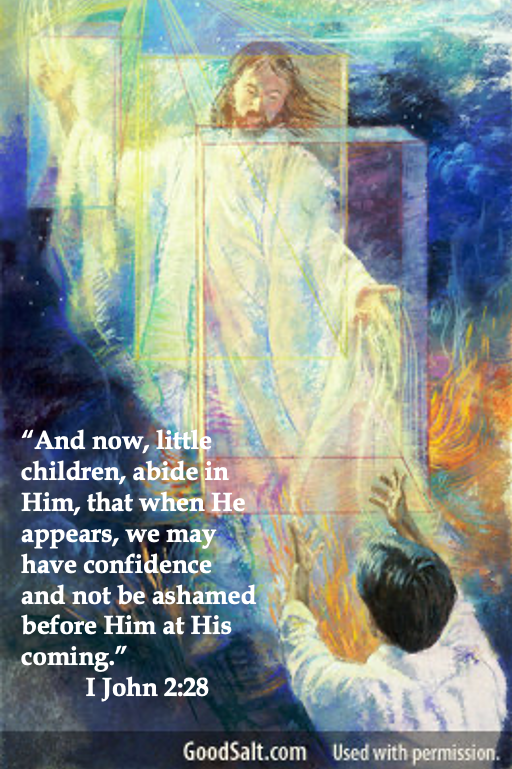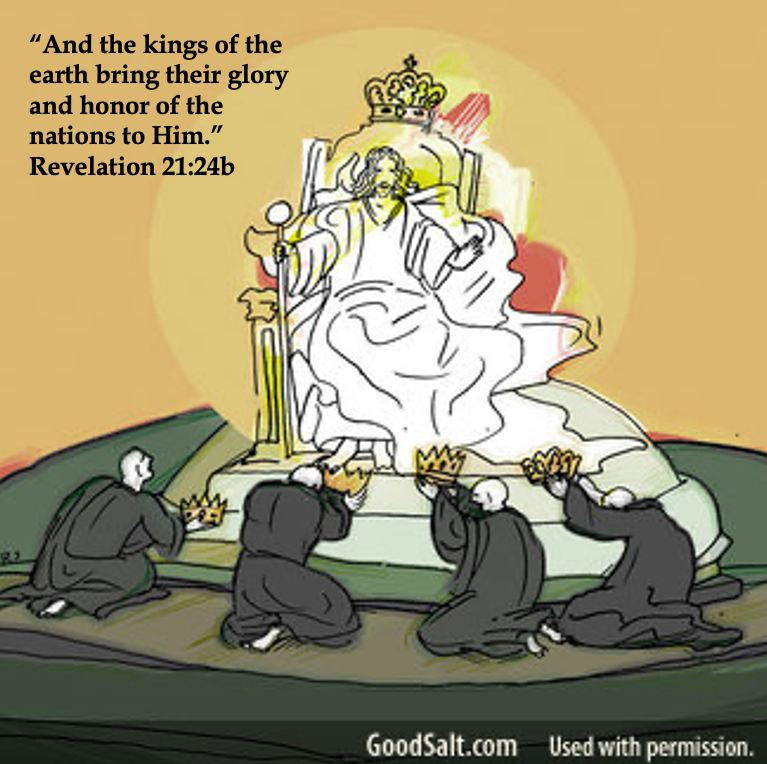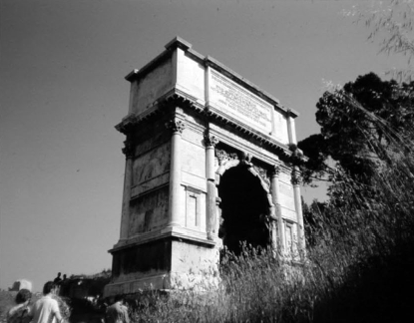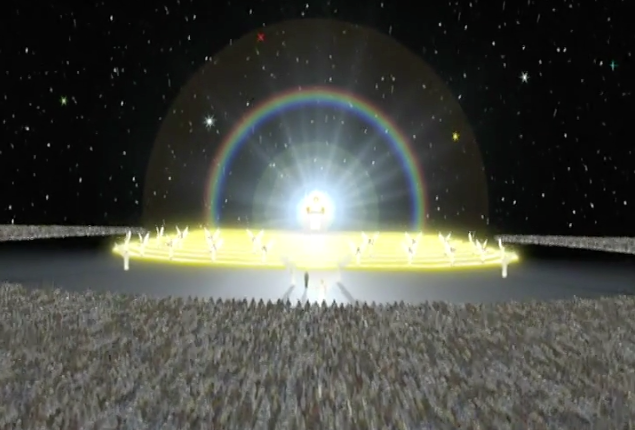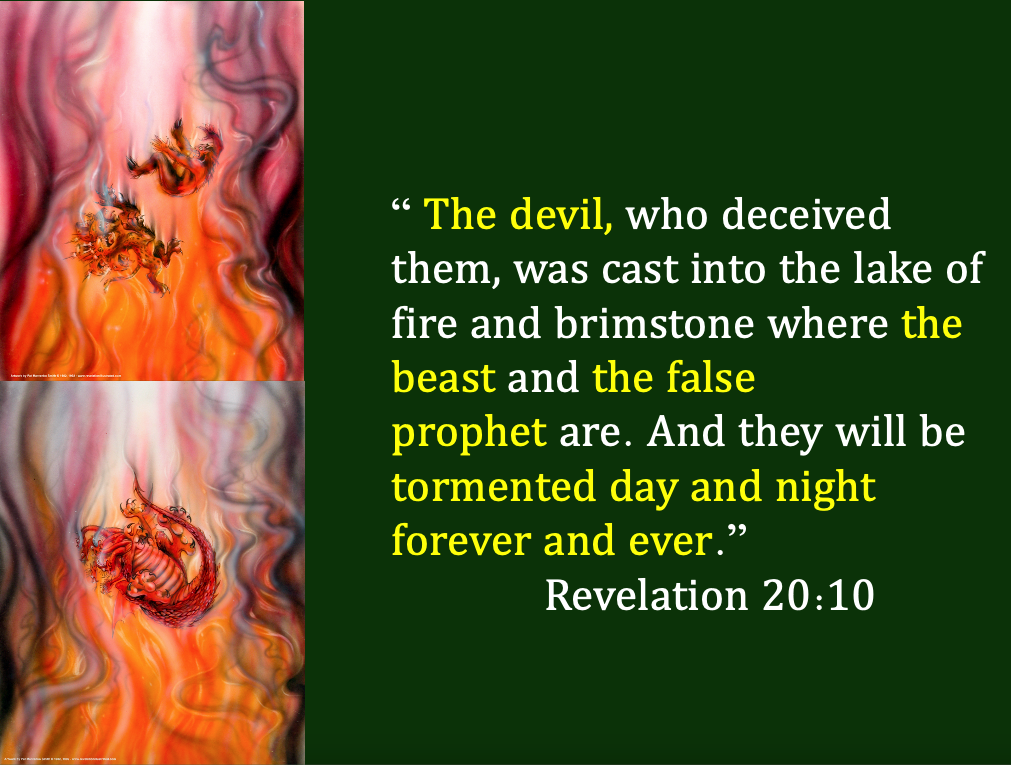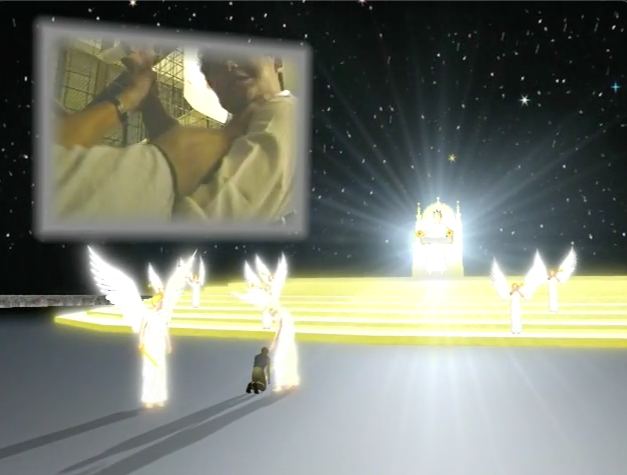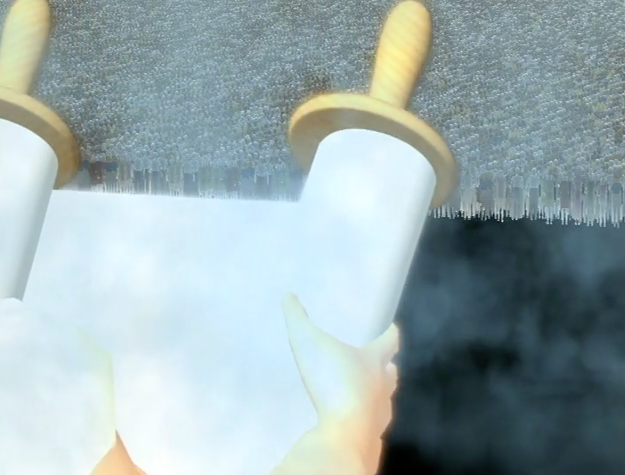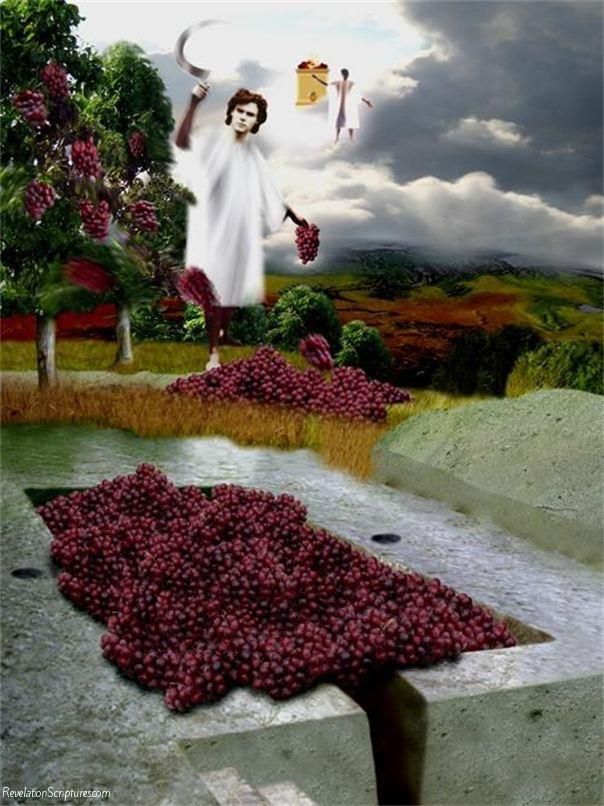“When Jesus saw him lying there, and knew that he already had been in that condition a long time, He said to him, ‘Do you want to be made well?’” John 5:6
In this chapter, we are going to address a deadly, dreaded disease. It is important that you listen closely because you could have this disease and not even know it. This disease can spread rapidly and render an entire church body spiritually bedridden. It is called spiritual paralysis or the loss of the ability to walk with God. Those stricken with this disease find themselves spiritually paralyzed…unable to do what God wants them to do. They are unable to make disciples – to lead others to Christ and train them to do the same. They may be unable to overcome a past hurt, habit, or hang up.
As Christians, it is essential that we know Jesus Christ is our greatest Advocate when it comes to recovery from past hurts, habits, or hang ups. When Jesus arrived in Nazareth, He entered the synagogue on the Sabbath day and read from the prophet Isaiah a description of the Messiah’s ministry, “The Spirit of the Lord is upon Me, because He has anointed Me to preach the gospel to the poor; He has sent Me to heal the brokenhearted, to proclaim liberty to the captives and recovery of sight to the blind, to set at liberty those who are oppressed.” (Luke 4:18). The verses Jesus read (4:18-19) were taken from Isaiah 61:1-2 which describe the promised Messiah’s ministry on earth.
There is a progression in Isaiah’s description of the Messiah’s gospel preaching ministry that is relevant to those of us struggling with things outside of God that are controlling us. We have learned to medicate our pain and shame with unhealthy coping behaviors. But Jesus came to “heal the brokenhearted,” resulting in “liberty” from that which we could not break free. Shame imprisons us, but the Savior liberates us. His gospel grants spiritual “sight” to us so we can begin to see ourselves through His eyes and no longer be “oppressed” by shame-based lies.
The biblical text does not tell us if Jesus read verse 3 of Isaiah 61, but this verse is a continuation of the Messiah’s ministry on earth. His healing grace will “console those who mourn in Zion, to give them beauty for ashes, the oil of joy for mourning, the garment of praise for the spirit of heaviness; that they may be called trees of righteousness, the planting of the Lord, that He may be glorified.” Our brokenness brought great sadness (“ashes… mourning”) to us, but Christ’s grace will “console” us, changing our sadness and “heaviness” of shame into “joy” and “praise.” This inward transformation will make us a blessing to others, like oak “trees” flourishing in “righteousness” because of the outrageous grace of God.
Jesus was and still is, all about setting people free from brokenness, chains, blindness, and oppression. He is committed to liberating people from the things in their lives outside of God that are controlling them.
And we all have something in our lives outside of God that is controlling us. It may be alcohol, busyness, a cell phone, drugs, fear, gambling, intellectualism, jealousy, materialism, peoples’ approval, pornography, sex, social media, sports, tobacco, unforgiveness, work, or worry to name a few. I believe the third miracle of Jesus recorded in John’s gospel teaches us important truths for overcoming spiritual paralysis which is often manifested in the form of addictions.
If you feel helpless to overcome things outside of God that are controlling your life, then you are invited to go with the Doctor on a poolside call to see how this dreaded disease of spiritual paralysis can be cured. Just how can we overcome spiritual paralysis?
RESOLVE to Get Well (5:1-6). You must want to get well. 5:1-2a: At the start of His second year of ministry, Jesus went to the Passover “feast” (cf. 6:4) in “Jerusalem,” where He would heal a certain invalid. This miracle took place to the north of the temple area at the “pool” of “Bethesda” near the “Sheep Gate” on the northeastern wall of the city of Jerusalem (diagram 1), which was built by the high priest, Eliashib, with his brethren (cf. Neh. 3:1, 32; 12:39).
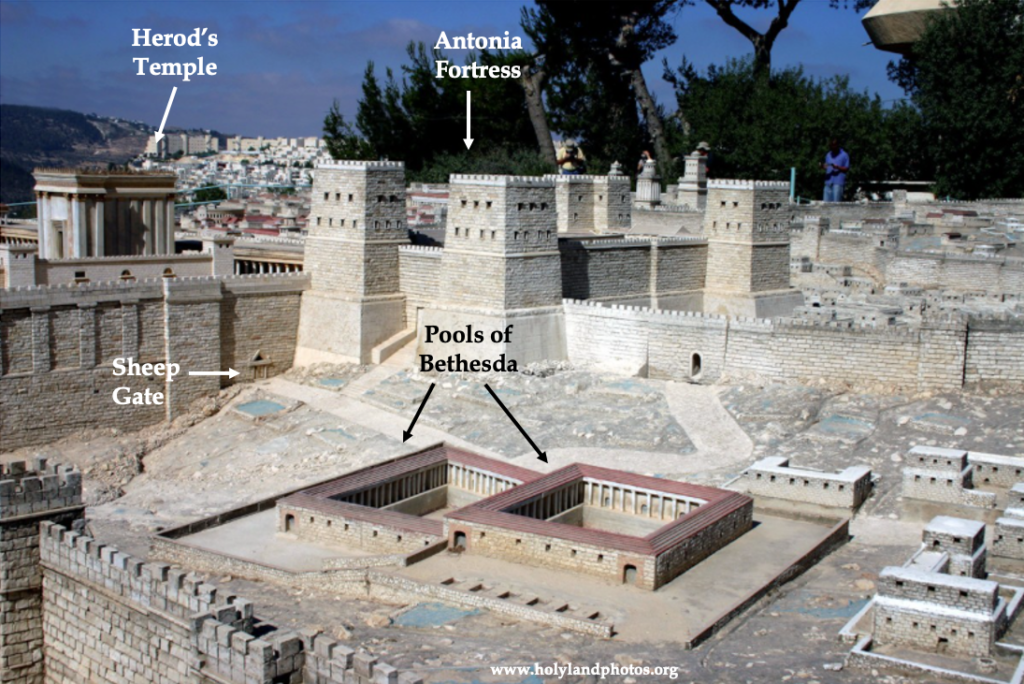
Bethesda” means “house of outpouring” or “house of mercy.” [1] This pool was near the “Sheep Gate” so that sheep coming to be sacrificed in the temple could be brought through this gate after being washed in this pool.
Today, Jesus Christ is our High Priest, and because of His all-sufficient sacrifice on the cross as the Lamb of God (John 1:29), we can be washed clean of all our sins by His blood which enables us to approach God with confidence in His heavenly throne room to worship Him (cf. Heb. 10:1-25; 13:10-16).
Excavations of this part of the temple area have shown there were two pools with a covered colonnade or porch on all four sides of the complex and a fifth colonnade that separated the two pools, confirming the description John gives concerning the “five porches” (John 5:2b) which would shelter the disabled and sick. [2] Five is the number of grace. Why were all these needy people gathered here?
5:3b-4: Some scholars reject these verses stating that they are not found in older Greek manuscripts and are not consistent with John’s writings. [3] But there are convincing arguments to include these verses in the original text of the gospel of John. [4]
- All known Greek manuscripts of John’s gospel include these verses except for less than a dozen.
- Christian apologist Tertullian confirms the authenticity of the passage in the third century.
- The reading was widely distributed in both the East and West as evidenced in the versions and writings of the church Fathers.
- The stylistic pattern of this passage is consistent with the unique content and probable connection with the traditions of Bethesda.
- The absence of these verses in older manuscripts can be explained by a falsely perceived “pagan tinge.”
- The statement about the multitude of sick assembled under the five porches in verse 3 and the response of the lame man in verse 7 demand the presence of verses 3b-4.
We must not forget that the Bible records many miraculous interventions of angels in the lives of ordinary people (cf. Gen. 19:1-11, 21-24; 2 Kings 6:16-18; Dan. 6:22; 10:8-13; Matt. 28:2-4; Acts 5:17-21; 12:5-10; et al.). God in the outpouring of His mercy granted miraculous healings at the Pool of Bethesda to heal some of the sick (diagram 2).
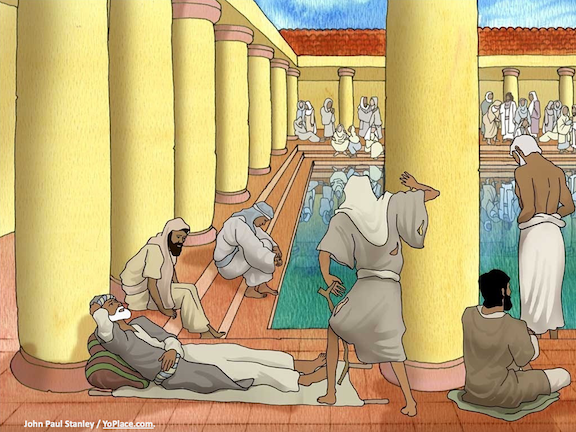
5:5: But there was “a certain man” at this pool who had not received this mercy or grace for “thirty-eight years” (John 5:5). This lame man lay forlornly in a place where God’s mercy and grace seemed to always touch others but never himself. There had been no mercy at the house of mercy for this needy man. Imagine how he must have felt to witness so many people being miraculously healed, but not once did he experience such healing. It would have been easy for him to conclude that God must not love him because if He did, he would be healed by now. For thirty-eight years he had been confined by paralysis to a bed, leaving him weak and hopeless.
Like the lame man who had lost hope, addicts can become so lost in their addiction for so long of a time that they give up on any type of recovery. They hear the testimonies of other addicts which speak of finding freedom from what once held them in bondage. But that freedom of which others testify had escaped them. The hopeless addict can easily conclude that their addiction or the pain that drives it must be too great to overcome. Hence, such an addict has no hope of lasting change because their chains have not been broken.

5:6: Of all the sick and disabled people at the pool that day, Christ chooses the one (diagram 3) who had probably been seeking healing the longest. [5] All the previous healings at the pool went to the least needy among the invalids (5:4-5, 7). [6] Now it was time for healing to come to the one who needed it the most. Christ chose this man because He knew “he already had been in that condition a long time” and had lost any hope of being healed.
We may think it strange that Jesus asked this man, “Do you want to be made well?” Surely anyone who has been chronically ill wants to be healed, right? Not necessarily.
“The reality is, most of us – especially addicts – are more comfortable with a familiar sickness than an unfamiliar solution. Jesus was really asking the man, ‘Are you desperate? Are you willing to do whatever I’m about to ask? Are you willing to do whatever it takes? If you are the only one to get well today, are you still all in? Do you really want it?’” [7]
“Do you want to be made well?” That’s a question we may need to answer, as well. The first step to overcoming spiritual paralysis or an addiction is to resolve to get well. Do you want Jesus to heal the parts of your life where you have been deeply wounded or is it easier to hold on to the hurt? Do you want Christ to overcome your fears or are you more comfortable playing it safe and not taking any risks because you are ruled by the fear of what could happen? All too often we hold on tightly to the things that keep us stuck.
To the one crippled by past hurts, Jesus asks, “Do you want to be healed?” To the one chained by secret sin Jesus asks, “Do you want to be set free?” To the one battling addiction Jesus asks, “Do you want to overcome?” To the one who is paralyzed by fear, Jesus asks, “Do you want to admit you are not in control and learn to trust Me?” To the one who has not yet believed in Christ alone to get them to heaven Jesus asks, “Do you want to be saved?” To all of us who need His healing touch in any part of our lives, He asks, “Do you want to be made well?”
The lame man responded to Jesus’ question. 5:7: He seems to be complaining, “Every time the water bubbles up, no one is here to help me into the pool. It’s always the stronger ones who reach the water first. It’s a shame those of us who need it the most get the least amount of help. It’s been that way for thirty-eight years.”
We do the same thing today. How often do we hear people say things like, “I’d stop drinking if my wife would quit nagging me!” “I’d work harder, but no one appreciates my effort.” “I’d stop doing drugs if my friends would stop pressuring me.” “I’d make better grades, but my teacher doesn’t like me.” “I’d come to church, but there are too many hypocrites there.” “I’d give up porn and sex if it wasn’t so accessible and appealing.” “I would forgive him if he would change.” We have such a difficult time saying, “I am responsible for my choices.” We blame heredity, environment, circumstances, the past – everything except ourselves.
Hence, the second way to overcome spiritual paralysis (our addictions) is to REFUSE TO BLAME OTHERS AND TAKE RESPONSIBILITY FOR OUR OWN CHOICES (5:7). When Jesus asks, “do you want to be made well?” what is our response? When Jesus asks, “do you want to be healed from your past hurts?” Do we reply, “you don’t know how badly they hurt me”? When Jesus asks, “Do you want to be freed from the chains of your secret sin?” do we counter, “I just can’t control myself”? When Christ says, “Do you want to be saved?” will you excuse yourself, “I’m not nearly as bad as other people I know.” When Jesus asks, “Do you want to become more effective in reaching the lost?” do we say, “I’m happy with the way things are?” When Jesus asks, “Will you try new ways to minister to the lost?” do we say, “I’m afraid of what could happen?” Jesus said to the cripple “Do you want to be made well?” And he replied, “I don’t have anyone to put me in.”
To receive the healing Jesus has for our lives, we must refuse to blame others and take responsibility for ourselves. Christ is eager to help us, but we must be willing to let Him. Living in denial only makes our addictions worse. We must break out of denial and stop blaming someone else for the choices we have made. It is time to face the pain in our lives so we will recognize our need for Jesus. Denial can stop today! Healing can begin today!
Jesus ignored the excuse of the lame man and out of love He gave him some strong medicine. 5:8: Christ does not preach to this man. He did not correct his theology. He did not expound upon God’s love and grace. He didn’t tell him to be more thankful. Nor did He recite the promises of God to him. People who have lost hope do not need knowledge. They need compassion and direction. [8]
First, Christ asks an impossible thing; secondly, He removes all possibility of a relapse; and thirdly, He expects continued success. All these are involved in the words: “Rise, take up your bed and walk.”
From these words, we discover the third way to overcome spiritual paralysis (our addictions): RELY ON CHRIST ALONE FOR HEALING (5:8). Notice that the first thing Jesus says to do is what the man could not do for thirty-eight years – “Rise.” On what basis does Jesus say these words to him? It is important to see this. Perhaps the lame man was thinking, “If this Man tells me to rise (and I cannot rise), it must mean that He intends to do something to make it possible.” Thus, his faith is transferred from his own efforts to Jesus: “He must do it. I can’t.” The man must also have reasoned somewhat along these lines, “If this Man is going to help me then I have got to decide to do what He tells me to do.”
Jesus does not say, “Try to build up faith in your mind. Pray for months first. Form a committee. Go to rehab and then you will be able to walk.” Overcoming addictions is not based on a Twelve-Step program or trying harder. Instead, Christ tells him (and us) to do something: “Rise! Stand up!” Obviously, it was Jesus’ will that this man should do what He told him to do, and the moment the man’s will agreed with the Lord’s will, the power was there. I don’t know whether he felt anything or not. All I know is that strength came into his bones and into his muscles and he could stand. He knew he could stand, and he did. By faith in Jesus this man stood up.
Twelve Step recovery programs begin with admitting one’s powerlessness to overcome their addictions. Every addict promises never to go back to their addictive behaviors after a relapse. But that does not happen until they come to grips with the fact that they are powerless to stop their unwanted behaviors. Jesus is asking this lame man to do something he has been unable to do the last 38 years. To do this, he must admit he is powerless, and Jesus is powerful. He must shift his focus from himself or other people around him to the only One Who has the power to do what is humanly impossible.
The apostle Paul said something similar when he writes, “10 And if Christ is in you, the body is dead because of sin, but the Spirit is life because of righteousness. 11 But if the Spirit of Him who raised Jesus from the dead dwells in you, He who raised Christ from the dead will also give life to your mortal bodies through His Spirit who dwells in you.” (Rom. 8:10-11). Do we realize that every Christian inhabits a spiritually dead body? We often forget this because we are physically alive. We are not naturally inclined to regard our physical body as dead. But from God’s point of view that is exactly what it is.
We might have expected Paul to say, “If Christ is not in you the body is dead because of sin.” But he does not. He says, “If Christ is in you…” (Rom. 8:10). When we are born again by believing in the Lord Jesus Christ for His gift of eternal life (John 3:15-16, 36; 6:40, 47), our inward nature changes (I John 3:9), but our physical body remains the same (Rom. 7:13-28; I John 1:8, 10; 3:2-3). It is still infected by the deadly virus of sin, and as a result is completely unresponsive to the new life the Christian now possesses. The Christian is inwardly alive, but his physical “house” is dead, that is, totally unresponsive to the new life within.
The good news is “the Spirit of Him who raised Jesus from the dead dwells in” every Christian though their physical body is dead or unresponsive to the eternal life within them (Rom. 8:11a). The same Spirit “who raised Christ from the dead will also give life to your mortal bodies” (Rom. 8:11b). It is God’s Spirit, not our own determination or willpower, which can grant the power to “resurrect” our spiritually dead physical bodies on earth. Thus, the key to overcoming addictions is not through our own determination and strength, but through the power of God’s Spirit indwelling us. [9]
Perhaps this is why the average secular recovery program only has a 3-10 percent success rate for addicts whereas a Christian-based approach to overcoming addictions has a 70 percent success rate. [10] Secular approaches tend to focus on the addiction or symptoms rather than the root cause or pain that drives the addictions and the power of God’s indwelling Spirit to heal that pain. Our dependency must be on God’s Spirit within us, not our own determinations, strength, or willpower.
Jesus may ask us to do things as a Christian that we have never attempted before. It may not make sense to us. It may seem impossible to us. But instead of trying to figure everything out, we just need to do it! Overanalysis leads to paralysis.
What does the Lord say next? The Lord did not merely say, “Rise,” He said, “take up your bed.” Why did He say that? I like the way G. Campbell Morgan has put it, “In order to make no provision for a relapse.” The man might have said to himself, “I’m healed, but I had better leave my bed here; I may need it tomorrow.” If he had said that he would have been back in it the next day. But he did not. Jesus said, “Take up your bed. Get rid of it; don’t leave it there. Don’t stay stuck.”
“Wherever your bed is, that’s where your home is. Thus, this man would no longer be sleeping in a place of despair. His home was changing.” [11]
Christ is saying something very important to people and churches who need to be healed: do not make any provision to go back on what you have done. If you do go back, the consequences will be worse than the first time. That’s why Jesus says to the man, “See, you have been made well. Sin no more, lest a worse thing come upon you.” (John 5:14). This man’s paralysis was due to personal sin. This is not always the case with physical ailments, but sometimes it is. And when Jesus enables us to overcome that sin, He says not to make provision for a relapse. Many people fail right here.
If Christ has enabled you to stop drinking, go home and pour out the alcohol! If you are off drugs, go home and get rid of the drugs! If you have stopped looking at porn, stay offline or at the very least, get an internet filter such as covenant eyes or canopy. Burn your bridges behind you. Say “No” to the friends you used to drink with or do drugs with or had sex with. You will probably find that some of them will come with you. Burn your bridges. Cut off any possibility of going back.
Let somebody know the new stand you have taken so that he or she will help hold you to it. Join an accountability group. Get involved with discipleship. You were wounded in the context of relationships and now you can heal in the context of healthy relationships. You cannot overcome your addictions in isolation. Satan will try to isolate you from Christians who can help you in this recovery process. He uses fear and shame to do this. Ask God to help you push through the fear and shame so you can ask safe believers for the help you need. Remember, “9 Two are better than one, because they have a good reward for their labor. 10 For if they fall, one will lift up his companion. But woe to him who is alone when he falls, for he has no one to help him up.” (Eccles. 4:9-10).
Burn your bridges, is what Jesus is saying. If you have forgiven someone, don’t rehearse the hurtful things they did to you. Let go and move on – burn your bridges. If you have been paralyzed by fear, cling to the promises of God and don’t rehearse those fearful “what ifs.” This is so important. Our Lord knows what He is talking about – “take up your bed.” Remove all possibility of a relapse.
The third thing Jesus said to the lame man is, “walk.” Don’t expect to be carried – walk. Many people want to be carried after they are healed. They expect everybody to gather around them and keep them going – a common area of failure. But if Jesus gives you the power to rise, Jesus is the One who can give you the power to walk every day, to keep going. That is an important thing to see – you and the Lord. Your eyes are not on your friends, your pastor, your recovery group, your counselor, or on yourself; your eyes are to be on Christ now. “Looking unto Jesus, the author and finisher of our faith.” (Hebrews 12:2). That is how this man kept going. It is how you as a believer can keep going in your Christian life.
It is important to see God’s part and our part in the healing process. Who healed the man at the pool? Jesus. Who had to walk? The man. Who saves us from our sins? Jesus. Who must believe in Him? We must. Who makes us more like Christ and gives us the power to to overcome our sinful addictions? Jesus. Who must decide day by day to follow Him and live life on His terms? We must.
The fourth way to overcome our addictions is to REDIRECT OUR FOCUS AWAY FROM LEGALISM TO CHRIST’S HEALING AND EMPOWERING GRACE (5:9-13). 5:9: The Bible tells us that “immediately” this invalid’s body responded to the power of Jesus Christ, and he was “made well, took up his bed, and walked.” John’s description of the man’s healing is probably a deliberate understatement. After being unable to walk nearly forty years, no doubt his limbs had atrophied, and his hope had withered. When Christ’s power made him well, this man must have jumped up off the ground, skipping and dancing, and doing cartwheels all around that pool of despair. [12] The outpouring of God’s mercy and grace had finally come to him.

But the apostle John reminds us in his reference to that day of healing being on “the Sabbath” (5:9b), that there were killjoys at this pool of mercy. 5:10: “The Jews” or religious leaders scolded this ecstatic man who had just been healed (Diagram 4), saying, “It is the Sabbath; it is not lawful for you to carry your bed.”
“According to the prevailing Jewish interpretation of the law, it was not legitimate to carry anything from one place to another on the Sabbath (cf. Neh. 13:15; Jer. 17:21-27). Doing so constituted a capital offense that could result in stoning. The rabbis allowed for exceptional cases, such as moving a lame person, for compassionate reasons.” [13]
“The Lord instituted the Sabbath as a gift. He ordered a day of rest to rejuvenate the bodies and minds of His people. More importantly, it was given in order to break the day-in, day-out cycle of routine so that people would not forget that God is the ultimate source of their sustenance; their labors are but a means of His provision. The Sabbath gave people permission to stop work so they would not neglect a vital need: worship. We are created for worship; therefore, worship is good for us. But the Pharisees turned this wonderful gift of God into a burden, an occasion for severe criticism, an excuse to exercise power, and yet another opportunity to remind themselves and everyone else of their superior moral worth.” [14]
Tragically, the religious leaders were more concerned about the infringement on their Sabbath rules than about Christ’s healing grace in this man’s life. Sadly, this is true of many churches today or Christian recovery groups. They are more concerned about their man-made rules than they are about sinners encountering the healing grace of Jesus Christ. Their focus is more on the behavior of an addict rather than the addict’s heart and way of thinking. That is the spirit of legalism. Legalism will render an addict spiritually paralyzed and defeated. The constant emphasis on behavior will reinforce the addict’s cycle of shame. The lame man did not know Christ. Jesus healed him regardless because of His GRACE. Grace is not restricted by rules and regulations or how much one knows. Grace expands in the context of loving relationships.
Jesus was more concerned about this man’s need to be healed than He was about breaking the Sabbath rules of the religious leaders. Grace puts relationships ahead of rules. Legalism puts rules ahead of relationships. God’s grace teaches us that an addict cannot change his behavior until He looks to Jesus to change his heart (cf. Mark 7:14-23).
5:11-13: The former lame man’s response to the religious leaders shows that he preferred to listen to this unknown Man with supernatural power, not these leaders who were practicing religion. These men had known he laid there as an invalid for thirty-eight years, but they never offered him any assistance. So, when an unknown Healer restores his legs and commands him to carry his mat, there was no question in his mind about whom he would listen to. [15]
If you have been in a recovery program or church that lack the healing grace of Jesus Christ from within because of their focus on external appearances, will you stay there or take up your mat and go home to a place off healing and hope? It is not an easy choice to make if legalism is all you have ever known.
Here is the dilemma. When Jesus wanted to do something new, the religious leaders were still caught up in the old. They were in a rut. Someone once said the difference between a rut and a grave is depth and length. And that is the dilemma for many of us today. We try to fit God into our safe set of rules. And like the legalists, we think that everyone else should also conform to our safe and comfortable box. But God is not contained in a box. The moment you think He is, He will do something new to burst that box you tried to contain Him in. God is looking to do something new in our lives and churches (cf. Isaiah 43:19).
I wonder what may be in our lives and church that simply cannot co-exist with the new thing that God wants to do? God is looking for someone who will step out in faith and say, “I don’t know what’s going to happen – but I want to join God in the new thing He is doing.”

We then discover the fifth way to overcome our spiritual paralysis (our addictions) which is to REMEMBER THERE ARE STILL CONSEQUENCES FOR OUR CHOICES (5:14). 5:14: The word “found” suggests that Jesus was looking for the former lame man (Diagram 5), He did not just happen to see him. Christ continues to pursue us after He heals us. Jesus came back to reveal Himself to this man. He wanted him to have more than just a healthy body. He wanted the former lame man to be healthy spiritually as well. He not only healed him of his physical affliction, but He also now wants to save this man from a “worse thing” which is possibly a reference to eternal suffering in the lake of fire. [16]
For this lame man to avoid returning to his sin, he needed Jesus in His life. John tells us in his gospel, “37 On the last day, that great day of the feast, Jesus stood and cried out, saying, ‘If anyone thirsts, let him come to Me and drink. 38 He who believes in Me, as the Scripture has said, out of his heart will flow rivers of living water.’ 39 But this He spoke concerning the Spirit, whom those believing in Him would receive; for the Holy Spirit was not yet given, because Jesus was not yet glorified.” (John 7:37-39). Believing in Christ for eternal life not only saves us from eternal suffering in the lake of fire, but it also results in God’s Spirit living inside us to give us the power to resist temptation and progressively experience victory over our sinful addictions. Christ shares His identity with this man now so he can know the Giver of eternal life and ask Him for it (cf. John 4:10).
It is also possible that Jesus is thinking of the consequences of going back to the sin that led to this man’s physical disability. I am not suggesting that all disabilities are because of personal sin. But in this man’s case it was.
How does this relate to overcoming addictions? It is possible to become sober for a long time and still be spiritually and emotionally unhealthy. Especially if you do not replace the addiction with Christ and His Word. When speaking of the spiritual condition of the wicked generation of Israelites in His day, Jesus said, “43 When an unclean spirit goes out of a man, he goes through dry places, seeking rest, and finds none. 44 Then he says, ‘I will return to my house from which I came.’ And when he comes, he finds it empty, swept, and put in order. 45 Then he goes and takes with him seven other spirits more wicked than himself, and they enter and dwell there; and the last state of that man is worse than the first. So shall it also be with this wicked generation.” (Matthew 12:43-45). We can sweep our house clean by becoming sober. Like the religious leaders of Jesus’ day, we can look good on the outside talking about the length of our sobriety. But inwardly we can lack love, joy, peace, patience, and kindness. If we do not fill the void in our lives with Christ and His Spirit, we are opening ourselves up to something far “worse than the first” addictions we had. We will experience greater demonic influences in our lives.
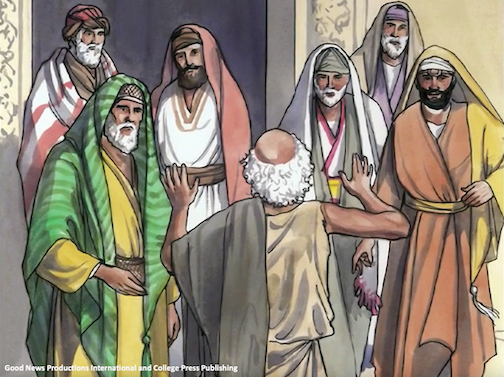
The final way to overcome our spiritual paralysis or addictions is to RENDER ALL THE GLORY TO CHRIST (5:15). 5:15: This man gave all the credit to Jesus for his healing (Diagram 6). Some interpreters think the man was giving his allegiance to the religious leaders instead of to Christ. But I understand this verse to confirm that the former lame man was giving Jesus the glory for his miraculous healing.
I am reminded of a story about a woodpecker that was pecking away at a huge tree. Suddenly a bolt of lightning struck the tree and split it from top to bottom. The woodpecker flew off in a flash. Minutes later he returned with several other woodpeckers. Pointing to the tree, he said, “There it is. Look at what I did!”
Are we quick to take credit for what God is doing in our lives and in our church? Or when God works in another believer’s life, are we quick to give the glory to that Christian instead of giving all the glory to God? When we humbly submit to Christ’s authority and give Him all the glory for the work He is doing in our lives, He gives us special power to continue to walk with Him.
Do you as an individual want to be made well today? Perhaps you are a Christian and you have been unable to live the way God wants you to live. You may be crippled by past hurts or a present habit or hang up or something else. Do you want to be made well and walk with the Lord Who has the power to set you free from your addictions? If so, you can say this prayer to God…
Prayer: “Lord God, I want to get well. I am tired of living in fear and shame all my life. I admit I do not have what it takes to overcome my addictions without You. Please make me willing to do whatever You ask of me. Please forgive me for blaming others, including You. Right now, I take responsibility for my own actions, and I trust You alone to heal me. Please give me the power to overcome the sin in my life that has crippled me. Help me burn the bridges that lead back to that sin so I can keep my eyes on You, walking with You the rest of my life. Please provide a group of loving Christians who can help me on this journey of healing and recovery for I cannot do this alone. Replace my fear with a radical faith that trusts You to do the impossible. In Jesus’s name. Amen.”
ENDNOTES:
[1] Tom Constable, Dr. Constable’s Notes on John, 2023 Edition, pg. 149 cites John Wilkinson, Jerusalem as Jesus knew it: Archaeology as Evidence (London: Thames and Hudson, 1978), pp. 95-104; Walter Bauer, A Greek-English Lexicon of the New Testament and Other Early Christian Literature: Third Edition (BDAG) revised and edited by Frederick William Danker (Chicago: University of Chicago Press, 2000 Kindle Edition), pg. 174.
[2] Edwin A. Blum, The Bible Knowledge Commentary Gospels, Editors John F. Walvoord and Roy B. Zuck (David C. Cook, 2018 Kindle Edition), pg. 582.
[3] Gordon D. Fee, “On the Authenticity of John 5:3b-4,” Evangelical Quarterly 54 (October-December 1982): 207-218; Bruce M. Metzger, A Textual Commentary on the Greek New Testament (London: United Bible Societies), pg. 209; Leon Morris, The Gospel According to John, NICNT (Grand Rapids: Eerdmans, 1971), pg. 203.
[4] Zane C. Hodges, “The Angel of Bethesda – John 5:4,” Bibliotheca Sacra 136 (January-March 1979): 39.
[5] Robert Wilkin, “The Gospel According to John,” The Grace New Testament Commentary: Revised Edition (Grace Evangelical Society. 2019 Kindle Edition), pg. 190.
[6] Charles R. Swindoll, Insights on John, Swindoll’s Living Insights New Testament Commentary Book 4 (Tyndale House Publishers, 2014 Kindle Edition), pg. 112.
[7] Mark Denison’s July 29, 2021, article entitled “Jesus on Recovery: 3 Keys to Overcome Addiction” at covenanteyes.com.
[8] Swindoll, Insights on John, pg. 113.
[9] This discussion on Romans 8:10-11 is adapted from an excellent discussion in Zane C. Hodges’ Six Secrets of the Christian Life (Grace Evangelical Society, 2016 Kindle Edition), pp. 8-11.
[10] Retrieved on June 2, 2023, from www.mysheepgate.org.
[11] Tony Evans, CSB Bibles by Holman. The Tony Evans Bible Commentary (B&H Publishing Group, 2019 Kindle Edition), pg. 2217.
[12] Swindoll, Insights on John, pg. 113.
[13] Constable, Dr. Constable’s Notes on John, pg. 153 cites the Mishnah Sabbath 7:2; 10:5.
[14] Swindoll, Insights on John, pg. 114.
[15] Evans, The Tony Evans Bible Commentary, pp. 2217-2218.
[16] Swindoll, Insights on John, pg. 116.

